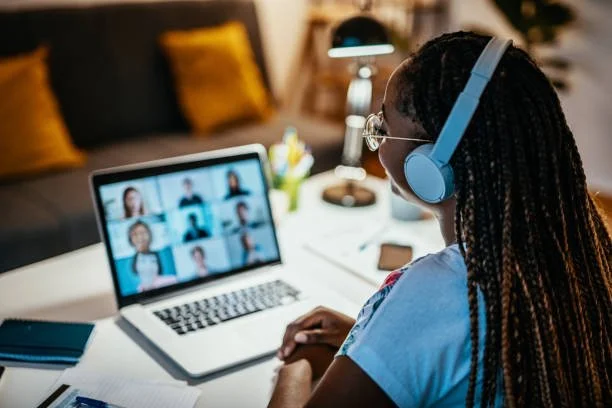
The Mountain Journal
Insights, healing tools, and real-life stories from the counseling room and beyond.
When Return‑to‑Office Mandates Miss the Mark: Why Healing, Growth & Culture Work Must Follow
A recent article in Black Enterprise revealed a powerful truth: despite a 13 % increase in return‑to‑office (RTO) mandates between Q2 2024 and Q2 2025, actual in‑office attendance rose by only about 1%.
What this signals is deeper than logistics – it’s a warning about culture, trust, and the mental health of your workforce.
At For Every Mountain Counseling Services®, we believe organizational wellbeing and individual healing go hand in hand. These RTO trends aren’t just about where people sit—they’re about how they feel. When employees show up but don’t feel seen, when policies feel rigid instead of relational, the result can be disengagement, anxiety, burnout, and a weakened culture.
Here’s how we view it — and how we partner with organizations and individuals to move from policy‑driven to people‑driven wellness.
Managing ADHD While Teleworking: Tips for Focus, Structure, and Mental Wellness
While most people associate Attention-Deficit/Hyperactivity Disorder (ADHD) with children and adolescents, the reality is that ADHD in adults is both real and increasingly visible—especially in a post-pandemic world where teleworking has become the norm.
As a licensed clinical professional counselor, I’ve worked with many adults struggling to maintain focus, structure, and motivation while navigating remote work. For those living with ADHD, the shift to working from home can disrupt routines, increase distraction, and lead to mental fatigue, anxiety, or burnout.
But with the right tools and support, it’s possible to stay productive, centered, and mentally well—even while working remotely.
What Is ADHD in Adults?
ADHD is a neurodevelopmental disorder that impacts attention, focus, organization, impulse control, and sometimes hyperactivity. In adults, this can show up as:
Difficulty staying focused during meetings or calls
Struggling to finish projects or follow through on tasks
Trouble managing time or prioritizing work
Forgetfulness, procrastination, and chronic restlessness
Increased anxiety, especially when structure is lacking
For many professionals, the move to a home office removed the external structure that helped keep ADHD symptoms in check. The result? More distractions, less productivity, and increased mental strain.
6 Tips for Navigating Remote Work with ADHD
Here are a few strategies I often share with clients to help manage ADHD while working from home:
1. Create a Dedicated Workspace
Designate one area of your home just for work. Physically “entering” and “leaving” this space can help train your brain to switch into focus mode.
2. Invest in Tools That Support Organization
Use planners, digital calendars, sticky notes, or time-blocking apps. Visual reminders and task lists are key for staying on track.
3. Establish a Daily Routine
Wake up at the same time, schedule your meals, plan work sessions, and stick to a consistent rhythm. Structure supports mental clarity.
4. Schedule Breaks (and Take Them)
ADHD brains thrive on movement and refreshment. Step outside. Stretch. Walk. Recharge.
5. Dress for the Day
Even if no one sees you, getting dressed shifts your mindset into productivity mode. Pajamas signal rest; structure starts with routine.
6. Practice Self-Compassion
ADHD is not a lack of intelligence or ambition—it’s a different way of processing. Therapy, coaching, and sometimes medication can help you manage it effectively.
You’re Not Alone—And You Don’t Have to Manage It Alone
At For Every Mountain Counseling Services, we specialize in helping adults manage ADHD, anxiety, and professional burnout through culturally competent, personalized therapy. Whether you're a remote worker, entrepreneur, parent, or professional, our licensed clinicians can support you in building routines that work with your brain—not against it.
📞 Ready to take the next step?
Book a Consultation Today or call (202) 907-6515 to get started.
Let’s Work Together
If you're feeling overwhelmed by remote work, struggling with ADHD, or simply need a clearer structure for your mental health, our team is here to help.
In-person and virtual sessions available
We accept CareFirst Blue Cross Blue Shield, Aetna, Cigna, and Medicaid
Serving adults, families, and professionals across Maryland and DC
Stay Connected
Want more tips like this? Subscribe to our monthly newsletter for mental health tools, blog updates, and community wellness resources.
The Impact of COVID-19 on Mental Health: Understanding Anxiety, Panic, and How to Cope
The COVID-19 pandemic has reshaped life as we knew it—bringing widespread uncertainty, isolation, and a collective mental toll that is still unfolding. From job loss and shifting work environments to disrupted routines and profound grief, the psychological impact of COVID-19 has been felt across every age, race, and socioeconomic group.
As a licensed clinical professional counselor, I’ve witnessed firsthand how deeply this season has affected my clients' mental wellness. Anxiety, panic attacks, and chronic stress have become everyday concerns for people who previously had no history of mental health challenges.
Let’s explore the most common anxiety-related disorders triggered or exacerbated by the pandemic, and what you can do to regain control of your mental well-being.
Anxiety & Panic Disorders Linked to COVID-19
1. Generalized Anxiety Disorder (GAD)
GAD presents as chronic, excessive worry about everyday life situations. People often report:
Feeling constantly “on edge” or restless
Fatigue or difficulty concentrating
Irritability and muscle tension
Trouble sleeping or unrefreshing sleep
The ongoing uncertainty of the pandemic—about health, finances, and the future—has heightened these symptoms in individuals who were previously able to manage daily stress.
2. Social Anxiety Disorder
Social Anxiety Disorder (SAD) has become more prevalent during and after lockdowns. Even basic social interactions can cause intense fear or avoidance. Common symptoms include:
Avoiding public or social settings
Excessive fear of judgment or embarrassment
Physical symptoms like blushing, sweating, or trembling in social scenarios
For many, the re-entry into social life post-isolation has reignited fears around public settings, especially in crowded or unfamiliar environments.
3. Panic Disorder
Panic disorder involves sudden and repeated episodes of fear or physical discomfort. During COVID-19, many adults have experienced:
Chest tightness or heart palpitations
Shortness of breath
Sweating, dizziness, or nausea
Fear of losing control or dying
These symptoms may mimic other conditions, but when linked to anxiety, they can be disruptive and frightening—especially when triggered by stress, illness fears, or trauma.
Coping Strategies for Mental Wellness in a Pandemic Era
While the pandemic disrupted our routines, it also revealed the critical need to prioritize mental health maintenance and resilience strategies. Here are several practical techniques I share with my clients:
Take daily walks – Nature and movement offer powerful mental resets
Create a daily routine – Consistency reduces mental fatigue and promotes stability
Limit social media and news consumption – Avoid information overload and unnecessary stress
Practice guided imagery or mindfulness meditation – These techniques calm the nervous system
Deep breathing exercises – Slow, intentional breathing can reduce anxiety in real-time
Eat well and hydrate – Nutrition directly impacts mood and brain function
Journal your thoughts – Writing provides emotional clarity and release
Know your triggers – Identifying patterns can help you prevent or manage panic
Connect virtually or in-person (safely) – Social connection remains vital to mental health
You Don’t Have to Navigate This Alone
At For Every Mountain Counseling Services, we support individuals and families navigating the emotional impact of the pandemic through culturally responsive therapy, anxiety management, and stress reduction techniques.
Whether you’re experiencing chronic anxiety, re-adjusting to in-person life, or grieving the loss of normalcy, our licensed clinicians are here to guide you with compassion and clinical expertise.
📞 Book a Consultation Today
We offer both in-person and virtual therapy services.
Schedule an appointment or call (202) 907-6515 to get started.
Stay Connected & Informed
Want more tools and updates on emotional wellness? Subscribe to our newsletter for monthly tips, blog posts, and client resources from our team.







